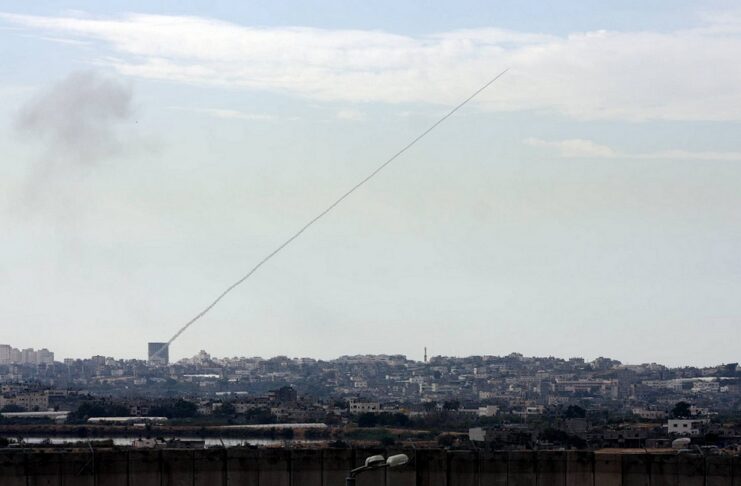Both Reuters and AP are denying that their staff journalists accompanied the Hamas terrorists into Israel on October 7. Further, they insist they had no prior knowledge as organizations – we're certain they're right on that, too. However, we also think it's true, as many are reporting, that some freelance journalists did accompany and record those terrorist attacks and slaughters. It's where there is a lesson for us all in reporting events from Gaza currently.
The claim (here at Newsmax) is that freelance journalists were embedded with Hamas during the attacks. This then moves on to a claim – well founded if that first part is true – that those embedded had also been employed, at times, by Reuters, AP, and other major news outlets. Reuters and AP have denied that they knew anything in advance as organizations also that none of their staff were involved in any manner. We think all of these claims are true. Some journalists did record the attacks – and so, at the very least, are complicit – and also that some of those have, at times, worked for the major news organizations. Finally, that those majors did not know and that none of their staff were involved.
As we've pointed out before, this stems from how news organizations work.
The Israeli missile that destroyed a hospital and killed 500 turned out to be a malfunctioning Islamic Jihad missile that hit the car park and killed 30. That's 30 too many, of course it is, but it's also a very different story. So why did everyone leap to the conclusion that it was Israel, the whole hospital and hundreds dead?
Why did the New York Times front pagehave a large picture of a destroyed building that wasn't even a hospital, let alone the one claimed to be destroyed?
On-the-ground news collecting is often done by freelancers and stringers (a stringer is a freelancer with a part-time contract with an organization). These are almost always locals and are certainly all living locally. They are not employees of the news organizations. So, it's entirely possible that freelancers who have, in the past, supplied pictures or stories to Reuters but who are not employees of Reuters could have done something.
But as we pointed out before, everyone is a local by residence, at the very least. So, they are likely to share local attitudes and beliefs. And the more repressive the regime – and Hamas is high on such an index – the more they have to report as the government, the men with all the guns, insist reporting is done. It's a dual problem – locals think as locals do often enough. Then there's also that pressure from the authorities.
This is something that is discussed within the news organizations. How much repression of reporting, how much curtailment, will we put up with to be able to report anything from these places? At some point, say North Korea, that's well beyond any reasonable compromise. But where, exactly, is that line?
We can and should leave news organizations to their ethical worries, for we've something much more important to conclude from this. We cannot trust local news reporting for large parts of the world – and Gaza is very definitely one of them. That combination of locals and government repression means that we're unlikely ever to be told the straight truth.
That's sad; of course it is. But it does mean that the first draft of the news coming out of even the major news organizations is not to be trusted as a perfect truth. That's not the way the world works. Trust but verify isn't true, not everywhere it isn't.
The opinions expressed in this article are those of the author and do not necessarily reflect the positions of American Liberty News. This article was first published by Accuracy In Media.


